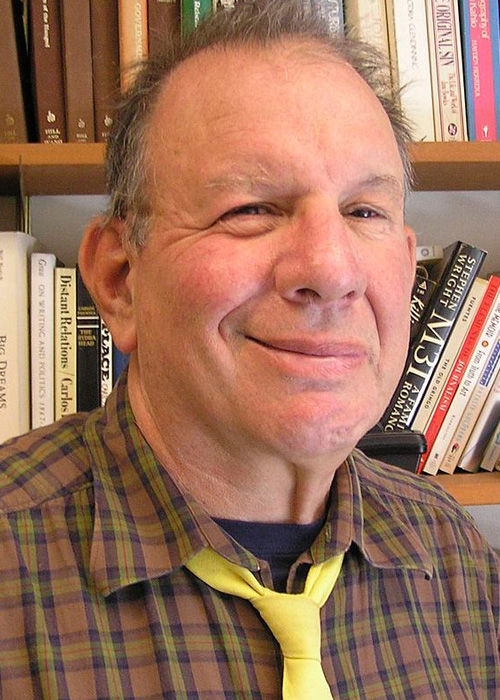I recently received an email from a reputable reporter who works for a reputable newspaper. The reporter said she reads my Cannabis Country columns and wanted to know what I knew about organized crime in the marijuana industry. Her email to me was prompted by a conversation she had with an elected official who claimed that “Bulgarian organized crime runs cannabis in Humboldt County, Laotian organized crime runs cannabis in Trinity and Cal Fire wouldn’t go into those areas without law enforcement accompanying them.”
Those words are the reporter’s, not the politician’s.
I have written about cannabis in Humboldt, Trinity, Mendocino, Sonoma and Marin counties for 40 years. So, I know that there are Laotians and Bulgarians in the cannabis industry. I also know that there are Russians, Mexicans, Chinese and people born and raised in the U.S. who grow cannabis in Northern California.
A couple of years ago, Mendocino County Sheriff Thomas Allman told me that his deputies had locked up individuals from a dozen different countries who were working in the industry and that some were speaking Russian and Bulgarian. Allman worked in Eastern Europe and recognizes Bulgarian and Russian accents. This June, I had a lengthy conversation with him about so-called organized crime in the region often described as “the Emerald Triangle” which he knows inside and out. He was born in Humboldt and has spent almost all of his career in law enforcement in Mendocino. He’s also in contact with sheriffs in other counties and knows what’s happening there.
“I have never met anyone who has said ‘I’m in organized crime,’” Allman told me. “No one ever does that.”
He went on to explain that while there were some towns in the Emerald Triangle where Hmong and Bulgarians had clustered, no single ethnic group or groups controlled the cannabis industry in any of the North Coast counties.
“Anyone who claims that Bulgarians and Hmong run the Emerald Triangle cannabis industry just doesn’t know the facts,” Allman told me. “And anyone who claims that Cal Fire requires help from law enforcement before they go into an area to fight fires doesn’t know what they’re talking about.”
Indeed, anyone who claims that Bulgarian organized crime runs cannabis in Humboldt and that Laotian organized crime runs the industry in Trinity is exaggerating at best and telling blatant lies at worst. Those comments also smack of racial profiling.
If officials in Washington, D.C., believe the story about the Hmong and the Bulgarians, it might result in additional funding from the federal government to eradicate illegal cannabis operations in northern California. But that story does not communicate the truth or truths about the industry. The rumors have also resulted in hostility toward Hmong and Bulgarians.
For years, law enforcement and the mass media insisted that all Mexicans who grew marijuana in northern California belonged to cartels. Like every other ethnic group, Mexicans are capable of growing marijuana without affiliations to big international criminal organizations.
Marijuana growers who don’t want to be arrested and go to jail, organize themselves into groups. They share tools and information. But for the most part, they are not in cartels or in mafia-like organizations.
The other day I asked a longtime Sebastopol marijuana grower and dealer about organized crime in the industry in west Sonoma County. He looked at me, smiled and said, “I’d hate to be a disorganized criminal.”
There are plenty of disorganized and unorganized individuals in the cannabis industry. They’re more likely to be arrested than the organized growers who often know when a bust is coming and can flee the scene.
One criminal defense lawyer tells his cannabis clients that if they don’t want to be arrested there are three basic things they can do. One, not grow in the same place where they live; two, not keep written records of their finances; and three, not keep scales and other items which could be used in evidence against them in court.
I tried for a month to reach the elected official who spread the “rumor” about the Laotians and Bulgarians in organized crime. Neither he nor anyone in his office returned my calls. No one at Cal Fire would confirm or deny “the rumor” that fire fighters require law enforcement to fight fires. No one I spoke to had ever heard that story.
I did speak with Cathy Mudge, the communications director for Assemblyman Jim Wood, who told me that his office had received no calls or complaints from constituents about organized crime in his district. Mudge added that Wood had “spent his whole career trying to end the illegal cannabis business, do the right thing and bring as many people as possible into the light.”
Doing the right thing means not spreading false and misleading information about cannabis. As a nation, we’ve had more than our share of lies and distortions, ever since the 1936 propaganda film, “Reefer Madness.”
Please, can we come out of the information darkness and shed light on the subject?
Jonah Raskin, a professor emeritus at Sonoma State University, is the author of Marijuana: Dispatches from an American War, published in French as well as English, and shares story credit for the feature length pot film “Homegrown.”








